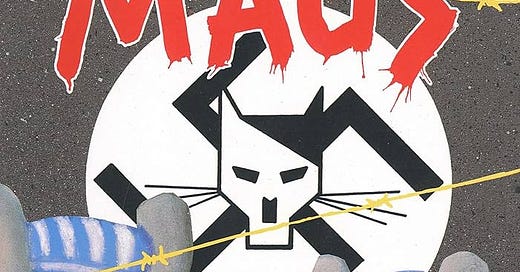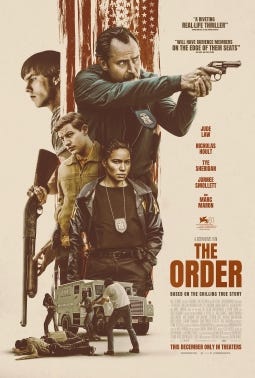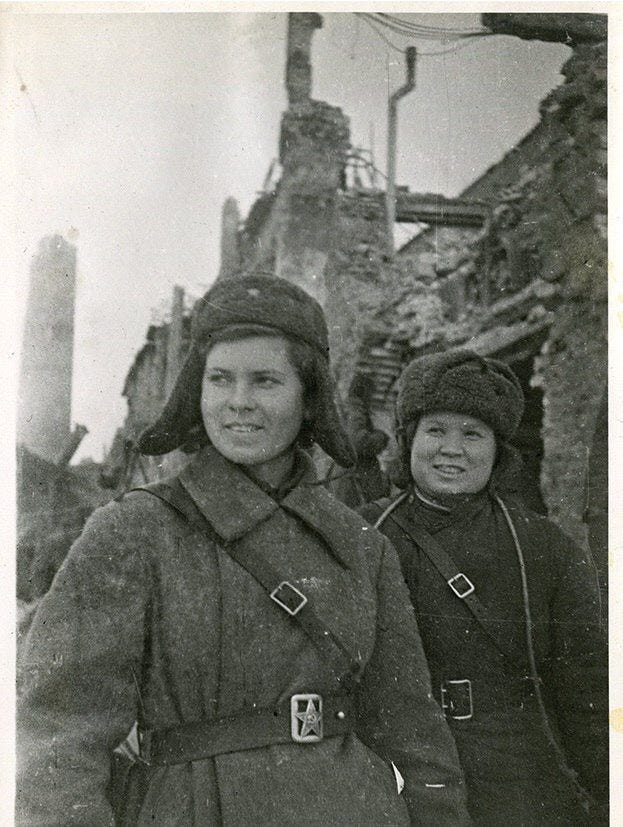Maus and White Supremacy
Maus II by Art Spiegelman
I finally finished Maus volume II and I could not put it down. I cannot fathom how people want to ban this book, especially in schools. The first volume details the slow-burn and lead up to the Holocaust, explaining that these racist sentiments did not happen overnight. The hate slowly built up over time in Volume I, spilling into mass violence, forcibly separating families and relocating entire populations to death camps in Volume II. The second part hits you in the face with the experiences of the Holocaust.
You cannot ignore these kinds of stories just because they make you uncomfortable. I don’t believe in Hell, but if I did, then I think Dante would’ve made a special 10th circle of Hell reserved for Holocaust deniers. The Holocaust fucking happened. We cannot ignore or minimize parts of history just because they make us uncomfortable or unveil the complicated nature of humanity. Rarely can people be boiled down into good vs. evil. We need nuance and that is why history is so important. Discussions around history present opportunity to explore those nuances, learning context and varied perspectives. As a teaching tools, books like Maus are invaluable for explaining these complicated concepts to young audiences. For adult audiences, I recommend History on Trial: My Day in Court with a Holocaust Denier by Deborah Lipstadt or the film, Denial, based on Lipstadt’s book.
I am deeply concerned about the rise in book banning we are seeing in more conservative states and the unwillingness to sit with discomfort regarding the more challenging parts of our history. The blanket refusal to even have conversations about history where context, nuance, and various perspectives are included is mind-boggling to this historian. I fear that these threats will grow and tolerance for history that isn’t white, cis, male-centric will dwindle, especially in education, with the coming political administration.
I recently watched the 2024 film, The Order, directed by Justin Kurzel. It chronicles the FBI’s hunt of the white supremacist domestic terrorist group, the Order, that operated in Idaho and the Northwest in the 1980s. Its based on actual events, although I’m not sure how historically accurate the film is.
I bring this up because banning books like Maus and the Diary of Anne Frank feed into the antisemitic, racist worldview of organizations like The Order and the Aryan Nations. Now, its a bit reductive to assume that banning books directly leads to violent white supremacists, but it does create a very narrow world that centers white, cis, patriarchal views.
Unfortunately, Idaho’s history is embroiled in white supremacy and Christian nationalism, which continues to plague our politics. It creates difficult circumstances for historians to tell diverse stories. I wrote about those difficulties four years ago while working at the Old Idaho Penitentiary for Clio and the Contemporary, and much of what I expressed then remains true. Give it a read if you’re interested in learning about the complexities that government historians must face.
https://clioandthecontemporary.com/2020/12/02/history-on-the-governments-dime/
I’ll get back to Soviet women soon, I promise!






